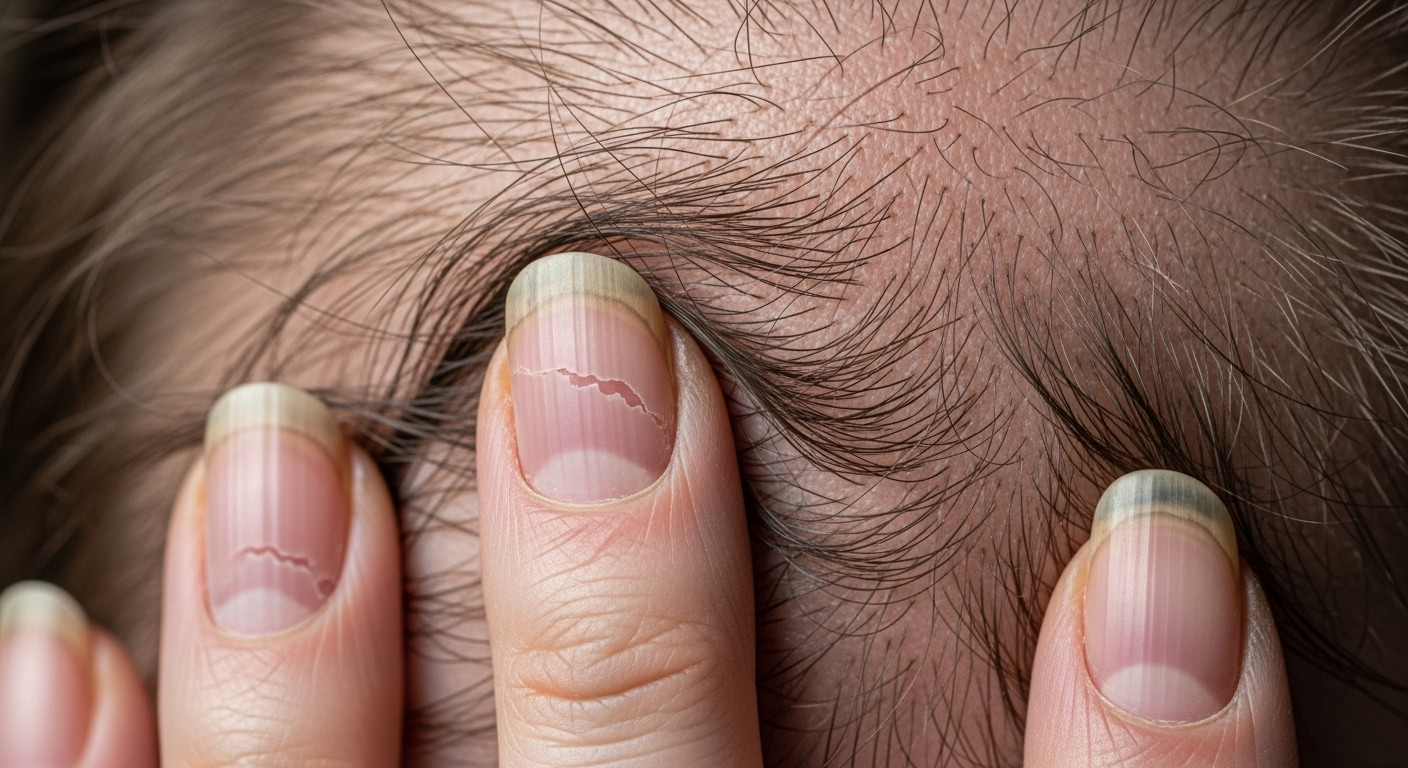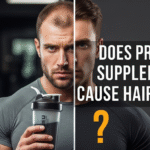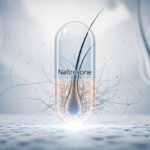If you're dealing with fragile nails and hair loss, you’re likely searching for answers to this troubling issue. These symptoms may seem unrelated, but they often have underlying causes that can affect both your nails and hair. In this article, we’ll explore the connection between fragile nails and hair loss, uncover the potential causes, and …
If you’re dealing with fragile nails and hair loss, you’re likely searching for answers to this troubling issue. These symptoms may seem unrelated, but they often have underlying causes that can affect both your nails and hair.
In this article, we’ll explore the connection between fragile nails and hair loss, uncover the potential causes, and provide expert tips on how to improve both. By understanding the root causes, you can start working towards stronger nails and healthier hair.
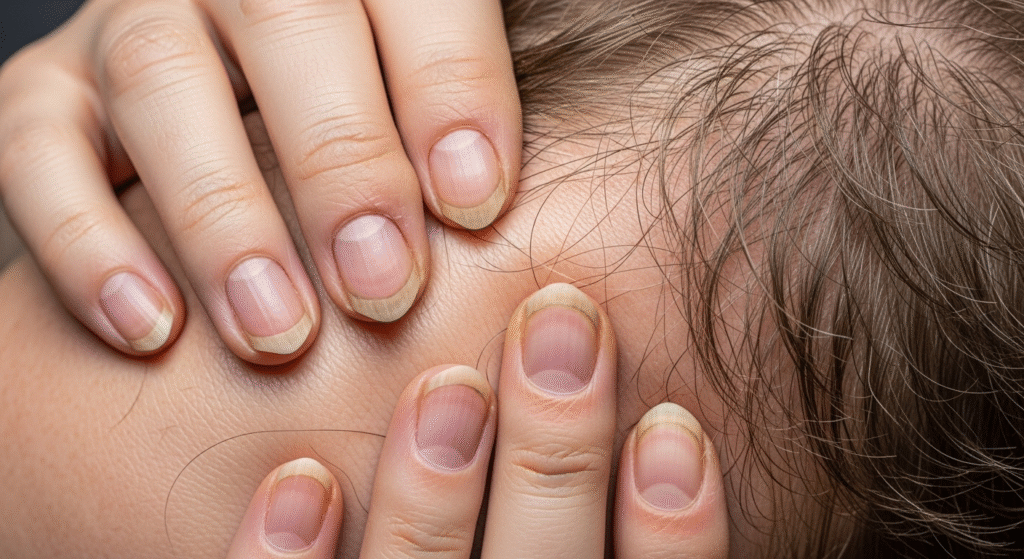
What Causes Fragile Nails and Hair Loss?
Many people experience fragile nails and hair loss at some point in their lives. Although they may seem unrelated, they share common causes.
Nutritional Deficiencies
Both fragile nails and hair loss are often linked to nutritional deficiencies. Your hair and nails require a variety of essential nutrients to grow and stay strong. A lack of key vitamins and minerals can significantly impact their health.
- Biotin: This vitamin is crucial for hair and nail health. A deficiency in biotin can lead to brittle nails and thinning hair.
- Iron: Low iron levels can lead to hair thinning and fragile nails. Iron is necessary for oxygenating hair follicles.
- Zinc: Zinc deficiency can cause hair shedding and weak nails, as zinc plays a key role in cell reproduction and protein synthesis.
Hormonal Imbalances
Hormonal changes, particularly in thyroid and androgen levels, can cause both hair loss and brittle nails. Common conditions such as hypothyroidism (underactive thyroid) or PCOS (Polycystic Ovary Syndrome) can result in noticeable hair thinning and fragile nails.
- Thyroid Disorders: Both hypothyroidism and hyperthyroidism can cause changes in hair texture, thinning, and brittle nails.
- Androgenic Hormones: High levels of testosterone or an imbalance in DHT (dihydrotestosterone) can contribute to hair thinning and nail health problems.
Medical Conditions and Medications
Certain medical conditions can lead to weakened nails and hair loss. Conditions such as psoriasis, eczema, and alopecia areata can directly affect both hair and nails. Additionally, medications like chemotherapy drugs, which are used in cancer treatment, can cause hair loss and affect nail strength.
- Alopecia Areata: This autoimmune condition causes hair loss in patches and may also affect nail growth.
- Chemotherapy: Chemotherapy drugs can cause hair loss and weaken nails due to their impact on rapidly dividing cells.
Stress and Lifestyle Factors
Chronic stress is another leading cause of hair loss and weakened nails. Stress disrupts the hair growth cycle, leading to telogen effluvium, a condition where hair falls out prematurely. Stress can also impair circulation, depriving your nails of essential nutrients.
- Chronic Stress: Long-term stress can lead to hair and weakened nails.
- Lifestyle Habits: Poor diet, smoking, and lack of sleep can all contribute to fragile nails and hair loss.
How to Improve Fragile Nails and Hair Loss
Once you understand the causes behind your fragile nails and hair loss, you can take the necessary steps to improve both.
Diet and Nutrition Tips
One of the most effective ways to support healthy nails and hair is by ensuring you’re getting the right nutrients in your diet.
- Increase Protein Intake: Hair and nails are primarily made up of keratin, a protein. Eating protein-rich foods like chicken, fish, eggs, and beans can help strengthen both nails and hair.
- Vitamins and Minerals: Ensure your diet is rich in biotin, zinc, iron, and vitamin D. These are essential for maintaining healthy hair and nails. Foods like leafy greens, nuts, seeds, and whole grains can provide these nutrients.
- Hydrate: Staying hydrated is essential for nail and hair health. Drink plenty of water to help maintain moisture levels in your nails and scalp.
Hair and Nail Care Routines
Incorporating proper care routines for your nails and hair can prevent further damage and promote growth.
- Moisturize Your Nails: Use nail oils or creams to keep your nails moisturized, preventing breakage and splitting.
- Gentle Hair Care: Use sulfate-free shampoos and conditioners. Avoid excessive use of heat styling tools that can damage hair and make it more prone to breaking.
- Avoid Harsh Chemicals: Steer clear of nail polish removers that contain acetone and other harsh chemicals, which can weaken nails over time.
Professional Treatments for Hair and Nail Health
In addition to self-care routines, there are professional treatments available to address hair loss and fragile nails.
- PRP (Platelet-Rich Plasma) Therapy: This treatment uses your own blood to promote hair growth by injecting growth factors into the scalp.
- Nail Strengthening Treatments: For severely brittle nails, a dermatologist can recommend strengthening treatments or prescribe topical treatments that improve nail health.
When to Seek Professional Help for Fragile Nails and Hair Loss
While small changes in diet and lifestyle can often improve fragile nails and hair loss, there are times when you should seek professional help.
Identifying Red Flags
It’s essential to monitor the severity of your symptoms. If you experience rapid or excessive hair loss, changes in the texture of your nails (e.g., pits, ridges, or discoloration), or scalp inflammation, it’s time to consult a doctor.
- Rapid Hair Loss: If your hair is falling out significantly and at an accelerated rate, it may indicate an underlying medical condition.
- Painful or Discolored Nails: Nails that become painful, discolored, or start to peel may require a visit to a dermatologist.
Consult a Dermatologist or Trichologist
If you’re concerned about persistent hair loss or nail weakness, seeing a specialist can help. A dermatologist can evaluate the health of your nails and hair, while a trichologist (hair specialist) can diagnose the root cause of hair loss and recommend targeted treatments.
Expert Recovery Tips for Promoting Healthy Hair and Nails
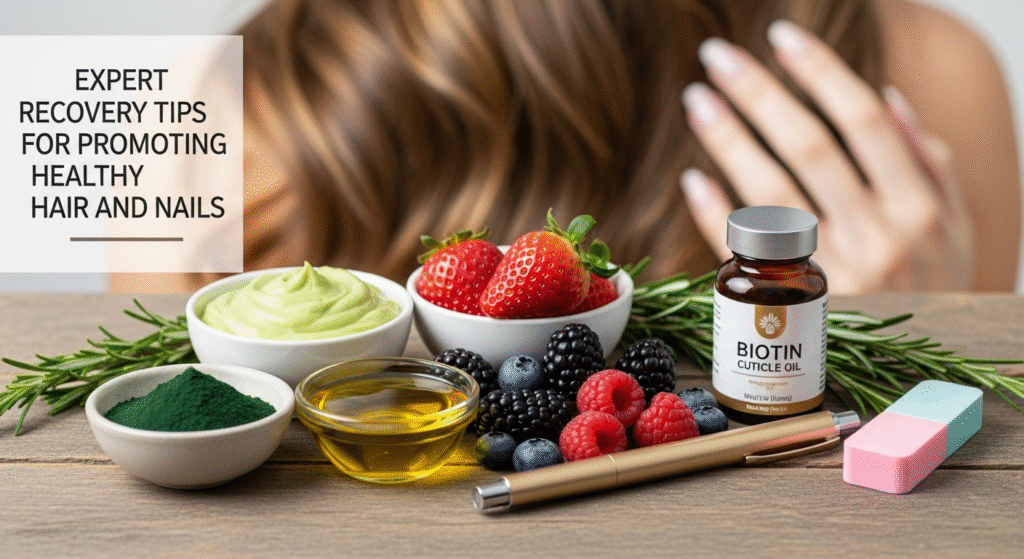
Balanced Diet for Strong Hair and Nails
Maintaining a balanced diet is crucial for promoting hair and nail health. Ensure you’re consuming a mix of protein, vitamins, and minerals necessary for hair and nail regeneration.
- Vitamins for Hair: Include foods that are rich in vitamin E and omega-3 fatty acids to promote a healthy scalp and strengthen hair.
- Nail-Supporting Minerals: Iron and zinc are vital for strong nails, so include foods like spinach, red meat, and chickpeas in your diet.
Stress Management Techniques
Stress can greatly affect your nails and hair, so adopting stress-reducing habits is essential.
- Mindfulness Practices: Engage in relaxation techniques such as yoga, meditation, or deep-breathing exercises to reduce stress and its effects on your hair and nails.
Hydration and Lifestyle Tips
Don’t forget to stay hydrated and get adequate sleep. Both are essential for healthy hair and nails.
- Adequate Sleep: Getting 7-9 hours of sleep per night helps your body regenerate and keeps your hair and nails in optimal condition.
FAQs
Can Protein Supplements Help with Hair Loss and Fragile Nails?
Yes, protein supplements can support hair and nail health by providing the essential building blocks (amino acids) needed for growth. However, it’s important not to rely solely on supplements—whole foods should be your primary source of nutrition.
How Long Does It Take to See Results in Nail and Hair Health?
Results vary, but it can take 3-6 months to see noticeable improvement in hair growth and nail strength after dietary and lifestyle changes.
Can Hormonal Imbalances Be Corrected for Better Hair and Nail Health?
Yes, addressing hormonal imbalances can significantly improve hair and nail health. Medical treatments, such as hormone therapy, may be necessary to restore balance and prevent further issues.
Are There Natural Remedies for Fragile Nails and Hair Loss?
Yes, natural remedies like coconut oil, biotin supplements, and rosemary oil have been shown to support hair and nail health. Consult with a dermatologist before using any natural remedies.
Conclusion:
Both fragile nails and hair loss can be symptoms of underlying health issues, but with the right care, nutrition, and professional guidance, you can restore the strength of your hair and nails. Start by addressing nutrient deficiencies, balancing your hormones, and incorporating healthy lifestyle habits. Consulting with a professional can also help identify and treat more complex causes of these conditions.
Ready for Stronger Hair and Nails?
If you’re struggling with fragile nails and hair loss, book a consultation with Dr. Uzma Irfan, an ISHRS-certified surgeon in Islamabad today to find the root cause and get personalized advice for healthier hair and nails.

